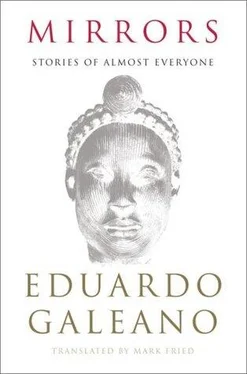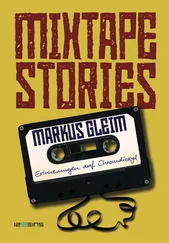After three humiliating trials, which offered daily banquets for the press and unleashed the indignation of the citizenry against this corruptor of youth, the jury found him guilty of gross indecency committed against the young men who had the pleasure of accusing him.
He spent two years in jail working with pick and shovel. His creditors auctioned off everything he owned. When he got out, his books had disappeared from the stores, his plays from the stage. No one applauded him, no one invited him.
He lived alone, and alone he drank, pronouncing his brilliant sayings for no one.
Death was kind. It came quickly.

Dr. Watson said nothing, but Sherlock Holmes answered anyway. He answered his silences, guessing all his thoughts one after another.
This brilliant feast of deduction was repeated word for word at the beginning of two separate adventures of the English detective. And not by mistake.
The original, The Cardboard Box, told of a sailor who killed his wife and her lover. But when gathering his stories into a book, Arthur Conan Doyle chose to suppress this risqué tale.
In those days, good manners demanded courtesy and silence. Adultery need not be mentioned, because adultery did not exist. Not to wound the sensibilities of his readers or to displease the queen, the author censored himself. However, he rescued the opening monologue by sticking it into another adventure of the most famous detective in the world.
On boring days, when London offered only mediocre cadavers and no enigma worthy of his superior intelligence, Sherlock Holmes used to inject cocaine. Conan Doyle never felt the least compunction in mentioning his character’s habit in story after story.
Drugs posed no dilemma. Victorian morals did not address the question. The queen was not about to spit in her own plate. The epoch that bears her name forbade passion, but sold consolation.

Arthur Conan Doyle was knighted, and not for the merits of Sherlock Holmes. The writer was invited to join the ranks of the nobility as thanks for the propaganda he wrote for the imperial cause.
One of his heroes was Robert Baden-Powell, the founder of the Boy Scouts. They met while fighting savages in Africa:
“There was always something of the sportsman in his keen appreciation of war,” Sir Arthur said.
Gifted in the art of following the tracks of others and erasing his own, Baden-Powell was a great success at the sport of hunting lions, boars, deer, Zulus, Ashantis, and Ndebeles.
Against the Ndebeles, he fought a rough battle in southern Africa.
Two hundred and nine blacks and one Englishman died.
The colonel took as a souvenir the horn the enemy blew to sound the alarm. And that spiral-shaped horn from a kudu antelope was incorporated into Boy Scout ritual as the symbol of boys who love nature.

The Red Cross was born in Geneva. It grew out of an initiative by several Swiss bankers to help the wounded abandoned on the battlefields.
Gustave Moynier led the International Committee of the Red Cross for more than forty years. He explained that the institution, inspired by evangelical values, was welcomed in civilized countries, but repudiated by the colonized.
“Compassion,” he wrote, “is unknown among those savage tribes that practice cannibalism. Compassion is so foreign to them that their languages have no word to express the concept.”

The descendants of Lord Marlborough, perhaps best known in song as “Malbrook who went to war,” had clout. And thanks to that family connection, young Winston Churchill managed to join a battalion of lancers heading off to fight in Sudan.
He was a soldier and chronicler at the Battle of Omdurman in 1898, near Khartoum on the banks of the Nile.
The British Crown was building a colonial corridor the length of Africa from Cairo in the north to Capetown in the south. The conquest of Sudan was a crucial step in the plan to expand the empire, which London explained by saying:
“We are civilizing Africa by means of trade,”
instead of confessing:
“We are trading away Africa by means of civilization.”
The redemptive mission advanced by blood and by fire. Since Africans were too feeble-minded to understand, no one bothered to ask their opinion.
In the bombardment of the city of Omdurman, Churchill acknowledged that “a large number of unfortunate non-combatants were killed or wounded,” victims of what a century later would come to be called “collateral damage.” But in the end, the empire’s weaponry achieved, in his words, “the most signal triumph ever gained by the arms of science over barbarians. Within the space of five hours the strongest and best-armed savage army yet arrayed against a modern European Power had been destroyed and dispersed.”
According to the official statistics of the victors, this was the outcome of the Battle of Omdurman:
among the civilized troops, 2 percent killed or wounded,
among the savage troops, 90 percent killed or wounded.

His objective in life was humble:
“If I could, I would annex other planets.”
Boundless energy was his birthright:
“We are the first race in the world. The more of the world we inhabit the better it is for the human race.”
Cecil Rhodes, the richest man in Africa, king of diamonds and owner of the only railroad with access to the gold mines, spoke clearly:
“We must obtain new lands,” he explained, “where to settle the excess of population, where to find new markets for the production of our factories and mines. Empire, I have always said, is a matter of the stomach.”
On Sundays, Rhodes entertained himself by tossing coins into a pool of water and having his black vassals pick them up with their teeth. But during the week he spent his time amassing land. This patriotic tycoon expanded the map of England five times over, stealing from blacks by natural right, and uprooting other whites, the Boers, from the field of colonial competition. To accomplish this he invented a rudimentary version of the concentration camp, which the Germans later perfected in Namibia before bringing it to Europe.
In homage to the feats of the English conquistador, two African countries were named Rhodesia.
Rudyard Kipling, lyre ever ready at the foot of the cannon, wrote his epitaph.

A number of years before Rhodes, King Midas of Phrygia wanted to turn the world into gold at the touch of his hand.
He asked the god Dionysus to give him that power. Dionysus, who believed in wine not gold, granted it to him.
Midas broke off the branch of an ash tree and it turned into a rod of gold. He touched a brick and it became an ingot. He washed his hands and a rain of gold poured from the fountain. And when he sat down to eat, his food broke his teeth and no drink could flow down his throat. He hugged his daughter and she turned into a statue of gold.
Midas was about to die of hunger, thirst, and loneliness.
Читать дальше


















